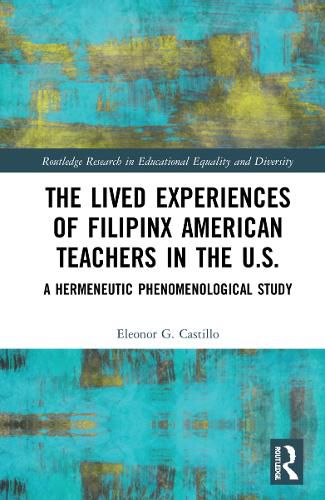Readings Newsletter
Become a Readings Member to make your shopping experience even easier.
Sign in or sign up for free!
You’re not far away from qualifying for FREE standard shipping within Australia
You’ve qualified for FREE standard shipping within Australia
The cart is loading…






This text offers a hermeneutic phenomenological exploration of the lived experiences of Filipinx American teachers in U.S. schools, classrooms, and colleges.
By drawing on one-on-one dialogues, group discussion, and reflective writing, the text identifies racial, cultural, and linguistic barriers that members of this minority group have faced in their training and practice as educators. The text questions the underrepresentation of Filipinx Americans among U.S. teaching staff and identifies causes both within the Filipino community and via external factors, including the absence of Filipino culture in curricula, as well as a lack of peer support in the development of Asian American teacher identities. This timely volume highlights the need to expand diversity teacher education to create a more racially diverse and inclusive workforce.
Offering rich insight into the experiences of Filipinx American teachers, this volume will be of interest to students, scholars, and researchers drawn to studies of multicultural education, as well as teacher education.
$9.00 standard shipping within Australia
FREE standard shipping within Australia for orders over $100.00
Express & International shipping calculated at checkout
This text offers a hermeneutic phenomenological exploration of the lived experiences of Filipinx American teachers in U.S. schools, classrooms, and colleges.
By drawing on one-on-one dialogues, group discussion, and reflective writing, the text identifies racial, cultural, and linguistic barriers that members of this minority group have faced in their training and practice as educators. The text questions the underrepresentation of Filipinx Americans among U.S. teaching staff and identifies causes both within the Filipino community and via external factors, including the absence of Filipino culture in curricula, as well as a lack of peer support in the development of Asian American teacher identities. This timely volume highlights the need to expand diversity teacher education to create a more racially diverse and inclusive workforce.
Offering rich insight into the experiences of Filipinx American teachers, this volume will be of interest to students, scholars, and researchers drawn to studies of multicultural education, as well as teacher education.